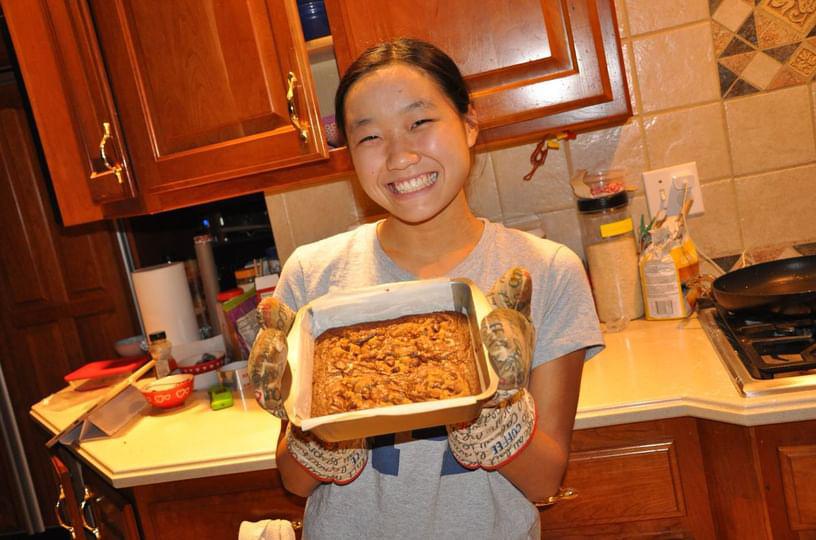Jamie Park, junior, started baking chocolate chip cookies during the COVID-19 Pandemic. She tried many popular online recipes and fell in love with the baking process.
“I kept baking, and I started making up my own recipes,” Park said. “There’s certain ratios you have to use, like two cups of flour to one cup of sugar, so I loved playing around with those.”
From this testing and creating, Park’s bakery emerged: Mental Bakedown.
Park said a member of her family struggles with an eating disorder, so turning her passion into a business empowered her to raise money for this cause. Park plans to donate all profits from Mental Bakedown to the National Eating Disorders Association (NEDA), the nation’s leading source of eating disorder research and treatment support.
Mollie Schlapp-Gilgoff, manager of mission initiatives at NEDA, said the organization provides informational support through the Grace Holland Cozine Resource Center with resources like the parent, educator and coach toolkits. NEDA has also invested millions of dollars in advancing research and advocating for change through national campaigns like Eating Disorder Awareness Week and Body Acceptance Week.
“[Those] are things that we can put in the hands of people to help them understand more about eating disorders but also people who might be affected by eating disorders in their lives,” Schlapp-Gilgoff said.
NEDA also has a screening tool to help people understand as early as possible if they are experiencing an eating disorder and to connect them with next-step resources, Schlapp-Gilgoff said. This tool has reached more than 1 million people.
While eating disorders can affect anyone at any age, Schlapp-Gilgoff said the majority of people with eating disorders are between the ages of 12 and 25.
Some of the most common eating disorders include anorexia nervosa, bulimia nervosa, binge-eating disorder, avoidant/restrictive food intake disorder, and OSFED (other specified feeding or eating disorder) Schlapp-Gilgoff said. The OSFED categorization was developed for people who have symptoms that are similar to one or more eating disorders but may not meet all the criteria, and this disorder is the most common.
There is no single cause of someone developing an eating disorder, Schlapp-Gilgoff said. The research says it’s a combination of biological, psychological and sociocultural factors.
“The important thing to remember is that these are real, life-threatening illnesses, and they’re complex,” Schlapp-Gilgoff said. “People should be seeking help early because we know that the earlier someone seeks help, the more likely they are to experience positive treatment outcomes.”
Schlapp-Gilgoff said NEDA has a fair number of small businesses that host fundraisers for the organization or donate a portion of their proceeds every year. NEDA also collaborates with other nonprofit organizations.
“Businesses like Mental Bakedown being open and vocal about eating disorders helps to spread awareness and break down stigma,” Schlapp-Gilgoff said. “Certainly it makes our work easier.”
Sneha Deo, junior, grew close to Park in their freshman year of high school.
“She would make me her cookies or things that she was wanting to try,” Deo said. “Before Mental Bakedown became a thing, she informally tested things and tried things and I was the test subject.”
Deo said she admires that Park has turned her passion into a business and is able to balance it with school and all her other activities.
Deo said especially in middle school, eating disorders weren’t properly addressed.
“In middle school, as a female, I would see some of my friends go through eating disorders, but it wasn’t really talked about. It was kind of stigmatized,” Deo said.
Deo said Park’s incorporation of baked goods and supporting NEDA is a brilliant idea to have a positive impact.
“I do believe that raising awareness and talking more about it can help people feel seen and comfortable to get help,” Deo said. “Just because it’s a problem doesn’t mean it should be hidden.”










